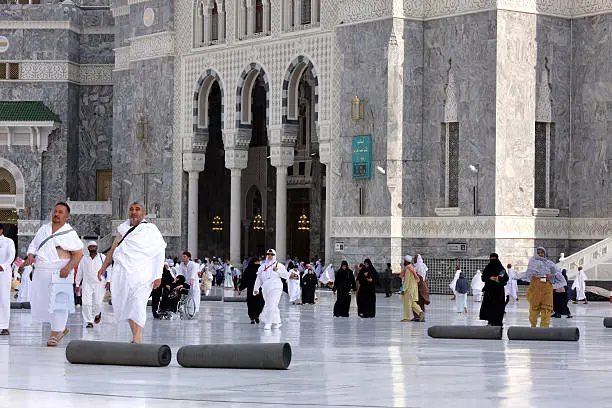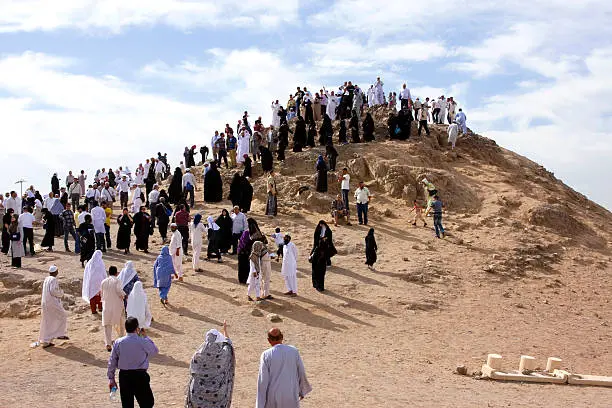September 26, 2025 | UAE : The 2026 Hajj season is now officially open for applications, as the UAE opens Hajj registration for citizens and residents who wish to perform the pilgrimage next year. With the 2026 Hajj season registration window active through October 9, the timing gives hopeful pilgrims ample days to prepare. The move reflects the UAE’s effort to streamline, digitalise, and strengthen services ahead of what promises to be a deeply meaningful journey for many.
For those considering this spiritual voyage, the fact that the UAE opens Hajj registration early is a welcome sign. It not only allows time for documentation, medical checks, and planning but signals that authorities are prioritising capacity, transparency, and ease. The 2026 Hajj season registration period is designed to avoid surprises, ensure quotas are met smoothly, and reduce last-minute rushes.
Here’s what we know so far about how to apply, eligibility, and what pilgrims should expect now that UAE opens Hajj registration for 2026.
Registration Details & Important Dates
- The registration period for 2026 Hajj season in the UAE opened on September 24, 2025 and runs until October 9, 2025.
- Applicants must apply online through the official channels of the General Authority of Islamic Affairs, Endowments, and Zakat (Awqaf), or via its smart app.
- The quota for UAE pilgrims in prior years has been limited, 6,228 pilgrims for 2025 season and demand typically exceeds supply.
- Early registration is emphasised so that verification, selection, logistics, and health checks can be completed in good time.

Who Can Apply & Eligibility Criteria
To be eligible for the 2026 Hajj season, applicants must:
- Be UAE citizens or residents.
- Be physically and financially capable of undertaking Hajj, as per Islamic requirements. (This is standard practice, though final eligibility rules will be promulgated by Awqaf.)
- Fulfill health requirements (vaccination, medical fitness) as mandated by Saudi and UAE authorities.
- Some reports suggest priority may be given to first-time pilgrims or those who have not performed Hajj recently, details are still being finalised.
Applicants should be sure they have a valid passport, Emirates ID or proof of residency, recent passport-size photographs, and supporting health and identification documents ready for upload during registration.
What Happens After You Register
Once UAE opens Hajj registration, here’s what you can expect next:

- Verification: Awqaf will review all submissions, check documentation, and validate eligibility.
- Allocation: Based on quotas and demand, selected pilgrims will be notified and allocated a slot.
- Package offers: Once selected, pilgrims will receive details of approved Hajj packages flights, accommodation, transport, etc.
- Final formalities: Visa processing, health clearances, orientation, and travel preparations.
- Pilgrim services: The UAE aims to improve camp allocations, transport logistics, and support services in sites such as Mina, Arafat, and Muzdalifah.
The early registration window ensures each of these phases has adequate breathing room, reducing pressure and confusion later.
Why Register Early? Benefits & Advice
Registering early during the 2026 Hajj season brings several advantages:
- Better chance of securing a slot: Quotas can fill quickly, so early applicants often have better selection odds.
- Time to prepare: Health checks, vaccinations, funds, and logistics require time; early registration gives that buffer.
- Peace of mind: Knowing your pilgrimage path early allows you to focus spiritually, not scramble with paperwork.
- Reduced last-minute stress: Avoid system delays, server overloads, or documentation issues near deadline.

Advice for prospective pilgrims:
- Use only the official channels to apply, Awqaf website or approved app.
- Upload clean and valid documents (passport, residency, photo, etc.).
- Monitor email/SMS for updates from Awqaf; respond quickly if additional information is requested.
- Plan your finances early fees, travel, accommodation.
- If you’ve performed Hajj before, check whether priority policies affect you.
Challenges & What Remains to Be Seen
Some uncertainties remain, as with any major registration process:
- Final rules and criteria (such as prioritising first-time pilgrims) may evolve.
- Quota limits: UAE often gets limited slots, meaning many applicants may not be selected.
- Coordination with Saudi authorities is always critical logistics, visa rules, pilgrim services must align.
- Tech and system stability must hold up under heavy traffic near deadlines.
If the system is robust and transparent, the 2026 Hajj season registration process could become a benchmark for future years and avoid many issues seen in past seasons.
Also Read: H-1B Visa Fee Clarified: What Indian Tech Workers Need to Know About New USCIS Rule














